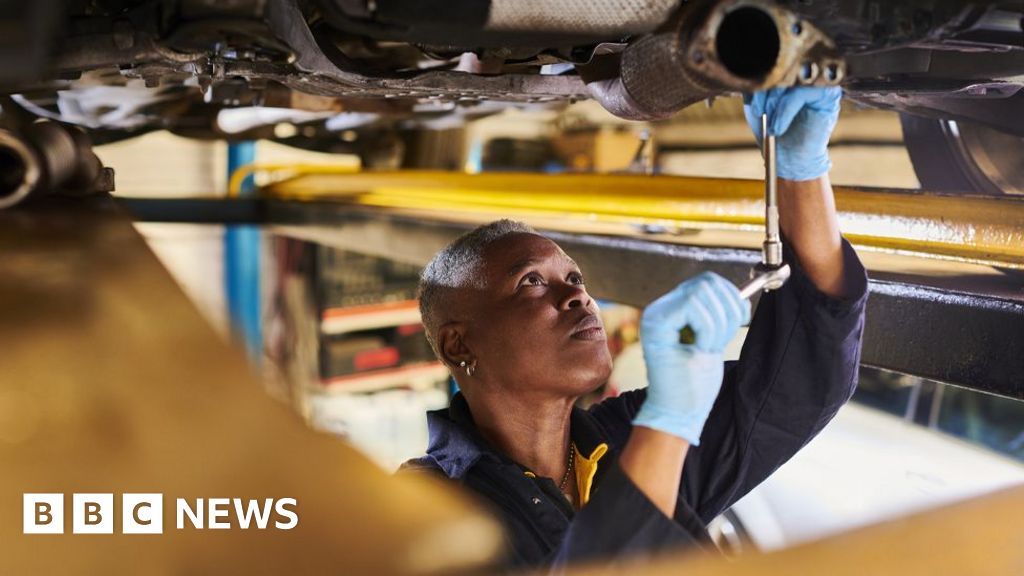ARTICLE AD BOX
By Oliver Smith & Tom Espiner
Business reporters, BBC News
Image source, Getty Images
Households are heading for an "almost inevitable" rise in energy bills in the autumn, the boss of energy regulator Ofgem has said.
Spikes in wholesale gas prices, which were rising even before Russia's invasion of Ukraine, will be passed on to consumers, Jonathan Brearley said.
He called for the shift to green energy to speed up the reliance on gas.
The UK government had previously said the energy price cap would "insulate" customers from gas price rises.
Mr Brearley warned in a speech that the gas price volatility caused by Russia's invasion of Ukraine would lead to higher costs being passed on to consumers.
"While it is too early to predict what the price cap will be in October, a price increase is almost inevitable," he said.
The energy price cap is the maximum amount that suppliers in England, Scotland and Wales can charge customers for each unit of energy.
It is set to rise in April when millions of households will face an increase in average energy bills of nearly £700.
In October, the price cap will be reset, and Ofgem warned last week that average bills could reach £3,000.
Green security
Wholesale gas prices, which were already rising rapidly as economies were emerging from the coronavirus pandemic, will be pushed higher by the Ukraine crisis, Mr Brearley said.
Russia's invasion of Ukraine underlined that "it is not in consumers' interests for their energy sources or prices to be so exposed to international gas markets".
Britain's oil and gas supplies are secure due to North Sea reserves, he said. But oil and gas extracted from the North Sea is not owned by the UK itself, but by the oil and gas companies which drill for it.
Those products are then sold on the global market which is has been volatile, even before Russia's invasion of Ukraine.
"We started winter with an international gas price shock of unprecedented pace, scale and duration," Mr Brearley said.
"However, this gas crisis is not over. We are entering a second, more serious phase that will have further consequences for customers and further financial strain for retail companies," he added, saying gas had gone up to nearly £7 per therm this week alone.
"It is not in customers' interests for their household bills to be beholden to the uncertainties of geopolitics," he said.
Some Conservative MPs, most notably the Net Zero Scrutiny Group, have argued for a greater reliance on fossil fuels.
But Mr Brearley said we must move away from fossil fuels not only to tackle climate change, but also to move away from volatile prices.
He said the UK must move as quickly as possible to low carbon energy.
Bill shock
Mr Brearley said it was Ofgem's priority to manage and mitigate the "inevitable consequences" of rising energy prices on British consumers but he said that "as an industry, we cannot pretend that our actions can mitigate the full impact of future price rises".
He said that anyone struggling to pay their bills should contact their energy provider to find out what help was available, but also urged companies to "reach out" to their most vulnerable customers and support them where possible.
Prime Minister Boris Johnson on Monday said that the government will soon set out an "energy supply strategy" amid concern over western reliance on Russian gas and oil.
He said the government was looking at using more UK energy resources: "One of the things we're looking at is the possibility of using more of our own hydrocarbons."
"That doesn't mean that we are in any way abandoning our commitment to reducing carbon dioxide [emissions]."
"You can do that, but you've got to reflect the reality that there is a crunch on at the moment and we need to intensify our self-reliance as a transition with more hydrocarbons."

 2 years ago
59
2 years ago
59








 English (US)
English (US)